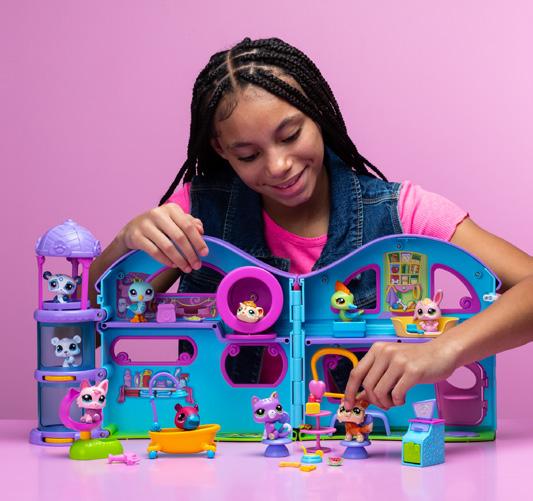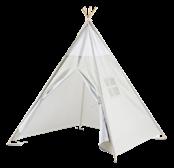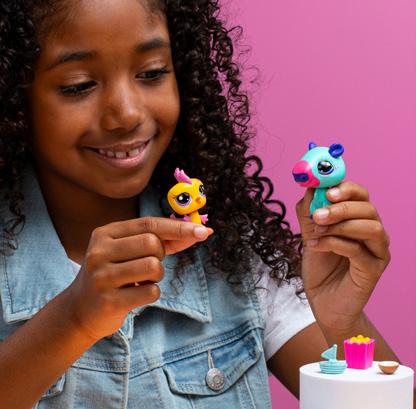South East





























Give your family essential skills and confidence in and around water. Save a spot with Swimbies for babies and toddlers, Better Swim School for kids or swimming lessons for adults.
Learn to swim at Better leisure centres in Greenwich and Lewisham



Editor Linda Stone editor@familiesselondon.co.uk 020 8241 0423
Sales Patricia Holloway patricia.holloway@familiespublishing.co.uk 07980 556813
Design Rebecca Carr rebecca@familiesmagazine.co.uk
Next issue: March/April
Booking deadline: 3 February
Cover image: Lummi.ai www.familiesonline.co.uk
Sep/Oct issue giveaway recipients
Congratulations to all our winners. You can find a list at www.bit.ly/SO24recipients
Happy New Year from all of us here at Families! We hope 2025 is a great year for you.
Kick it off with some anticipatory excitement and plan some fun for the summer with our family festivals guide. Then, settle down, read our interview with Aiden, age 8 and inspire your kids to follow in his footsteps for a good cause! In preparation, you can keep them physically active with our novel suggestions for indoor, home-based, NONSCREEN activities.
If you feel like you or your family has got into a bit of a rut in recent times, check out our ideas for feeling more alive in 2025 and make it a truly top year!
If you have a young baby or are expecting one, you’ll be interested to read our article on the importance of gut-health – find out all about your baby’s biome. And get up to date on the new childcare offering that’s being rolled out and why you would be advised not to delay in finding your child a nursery place for September.
Finally, in this issue, we have two Littlest Pet Shop Bundles, worth £100 each to giveaway! Apply inside and also ensure you receive a digital version of every issue of our magazine and more giveaways and useful information in our newsletter.
Linda
Editor, Families South East
This product is made of material from well-managed, FSC®-certified forests and other controlled sources.
Families South East London is a franchise of Families Print Ltd of 75 Lisbon Avenue, Twickenham, TW2 5HL. Families is a registered trademark of Families Print Ltd. All franchised magazines in the group are independently owned and operated under licence. The contents of Families South East London are fully protected by copyright and none of the editorial or photographic matter may be reproduced in any form without prior consent of Families South East London. Every care is taken in the preparation of this magazine but the franchise owner and Families Print Ltd cannot be held responsible for the claims of advertisers, nor for the accuracy of the contents, or any consequence thereof.



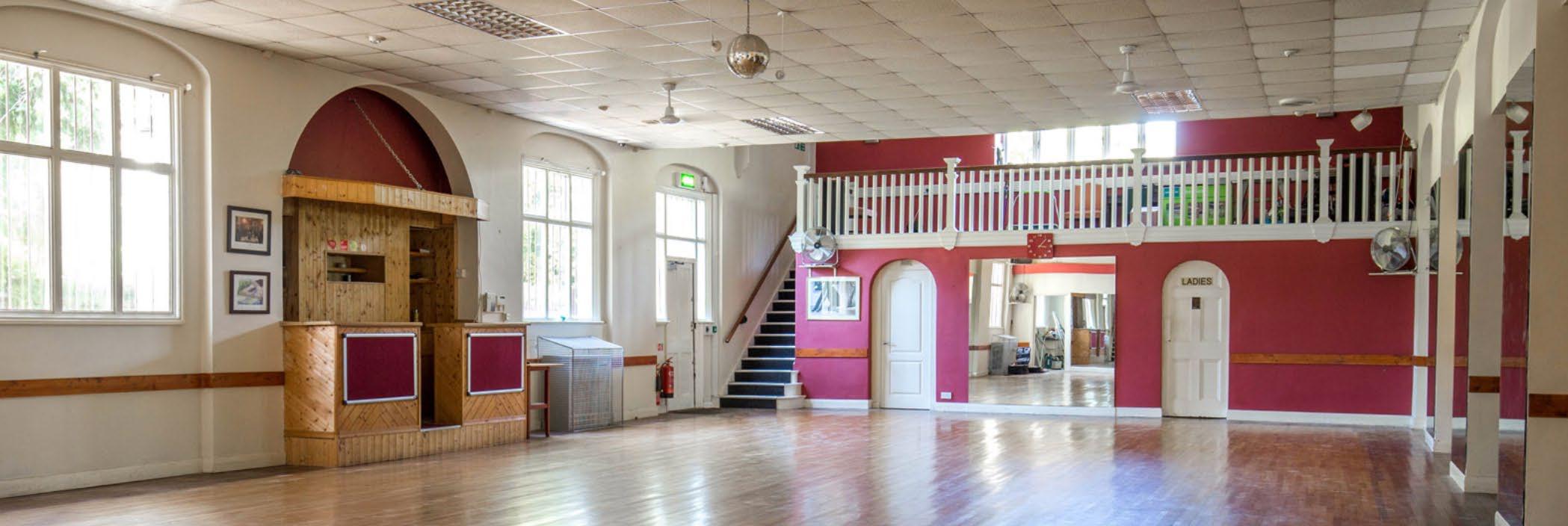









By Bradley Busch
Want to raise a high-flying child? Here’s how to encourage the good learning habits that ‘smart kids’ demonstrate that will set your child up for life.
Believe they can improve. Kids can believe they have a fixed amount of intelligence, which can lead to a defeatist attitude towards schoolwork. They might say: ‘I know I can’t do this, so there’s no point trying.’ These children often give up on challenging tasks and reject feedback. Other children believe they can improve. They might say: ‘I find maths difficult so I’m going to try even harder.’ These kids have a growth mindset, believing they can improve by working hard and learning from their mistakes. This makes them better learners.
Try this: Praise your child’s effort, not achievement. Try: ‘I’m pleased with how hard you worked on your writing. What do you think would make it even better?’
Don’t compare. Smart children are more likely to focus on their own achievements and not compare their performance to others. This self-referencing leads to greater motivation and confidence. It’s the difference between saying: ‘I know I’m good at ten-pin bowling because I always win’ and ‘I know I’m good at ten-pin bowling because I used to get 90 points and now I get 110.’
Try this: ‘Your handwriting is really improving. Now try focussing on making your letters all the same size.’ Don’t say: ‘Why can’t you write as neatly as your sister?’
Ask for help. In late primary school, children (particularly boys) can become reluctant to ask for help because they think it’s a sign of weakness. But one of the hallmarks of a resilient learner

Hosting students on a language homestay offers an enriching experience for both student and host. Students are given an opportunity to learn English in an authentic environment, as they engage in real-life conversations, gain cultural insights and practise in natural contexts like at family meals and during social interactions and activities. Hosts can share language and culture in a meaningful way, foster cross-cultural understanding and create connections and friendships with people from around the globe. Hosting also provides a flexible way of earning income from the comfort of your home. As a freelancer, you decide when to work and whom to host, allowing for a work-life balance. Homestays vary in duration, generally ranging from one to three weeks and typically include private tuition sessions, fullboard accommodation and optional activities.
Influent offers full-immersion homestay language programmes abroad for children, teenagers, adults and professionals. If you are thinking of becoming a host teacher, visit www.influentme.com/become-a-host-family

is that they ask for assistance if a task is proving difficult.
Try this: Explain to your child that asking for help is the sign of a mature learner. If they’re having trouble with homework, encourage them to seek an explanation from the teacher.
Learn from feedback. Can your child absorb the teacher’s comments and guidance for improvement? Many students see feedback as criticism and are less likely to take it on board.
Try this: Rather than your child asking themselves or you ‘Is this okay?’ – a question that could lead them to accepting work that doesn’t live up to their ability – suggest that your child asks: ‘How can I improve this?’
Children whose parents have high expectations for them do better at school.
Bradley Busch is a Chartered Psychologist) and author of Release your inner drive: Everything you need to know about how to get good at stuff, available from www.bookshop.org

Being sleep-deprived has a noticeable impact on children’s academic achievement. Sleep is closely linked to children’s learning, memory and emotional control and children who regularly get a good night’s sleep tend to raise their results by one grade per subject in exams.
Try this: Enforce a screentime ban an hour before bedtime and ensure tablets, phone and laptops are not in your child’s room overnight. Using screens before bed could result in your child losing an hour of sleep per night.
Contrary to appearances, smart kids are not the ones who put hours into every homework task and stop going to their after-school clubs to revise for exams. Instead, they balance their workload with extra-curricular activities, seeing friends or just relaxing at home. Physical activity and social contact are linked to mental and physical wellbeing, which has a knock-on effect on their schoolwork.
Try this: Make time to go to the park for a family walk or run. Leading by example is important if your child is going to achieve a good work/life balance.
By Lucy Alexandra Spencer
Preparation for the 11+ grammar or independent school exams can sometimes feel overwhelming but with careful planning, it can become a manageable and even rewarding experience. Try these actionable, supportive steps:
Creating a study routine
To help your child feel prepared, establish a consistent study routine as early as possible. Set up a quiet, well-lit area for homework and use a calendar to visually mark out revision. Regular short practice sessions are often more effective than infrequent, long ones. Monitor your child’s progress in school reports and address any subject areas where they’re struggling. Since the 11+ typically assesses children above their age level, staying ahead of the curriculum expectations is key.
Consider tutoring support
If your child finds certain areas challenging or needs motivation, it may be worth looking into tutoring support. Group sessions, online programmes or one-to-one tutoring can provide targeted guidance.
Registering for exams
Check application deadlines for each school, as these vary widely. Many independent schools require applications by June of the year your child turns 10, while grammar school applications often only open in May and June of Year 5. Mark these dates in your calendar and if you’re close to missing a deadline, contact the school directly.
Using mock exams to build confidence
Use mock exams to prepare for the real test. Start with home practice by setting a timer and simulating silent exam conditions.

To stay ahead in 11+ prep it greatly helps to understand both school report language and standardised scoring bands. School reports often use terms like ‘Working Towards,’ ‘Expected,’ and ‘Greater Depth.’ For the 11+, aiming for ‘Greater Depth’ or ‘Mastery’ indicates a child is performing above age expectations, which is beneficial for competitive exams.
Schools also use standardised scores to show how a child ranks nationally against their peers. A score of 100 typically represents the national average. For the 11+, children should ideally score well above 100, with 115 and higher often seen as a strong position. Some schools may require scores even closer to 120 or more for a pupil to be considered ‘ahead of the curve.’
Seeking additional support early for your child, especially if they are working below the ‘Greater Depth’ level or achieving a standardised score below 115, can help you feel more in control and alleviate pressure.
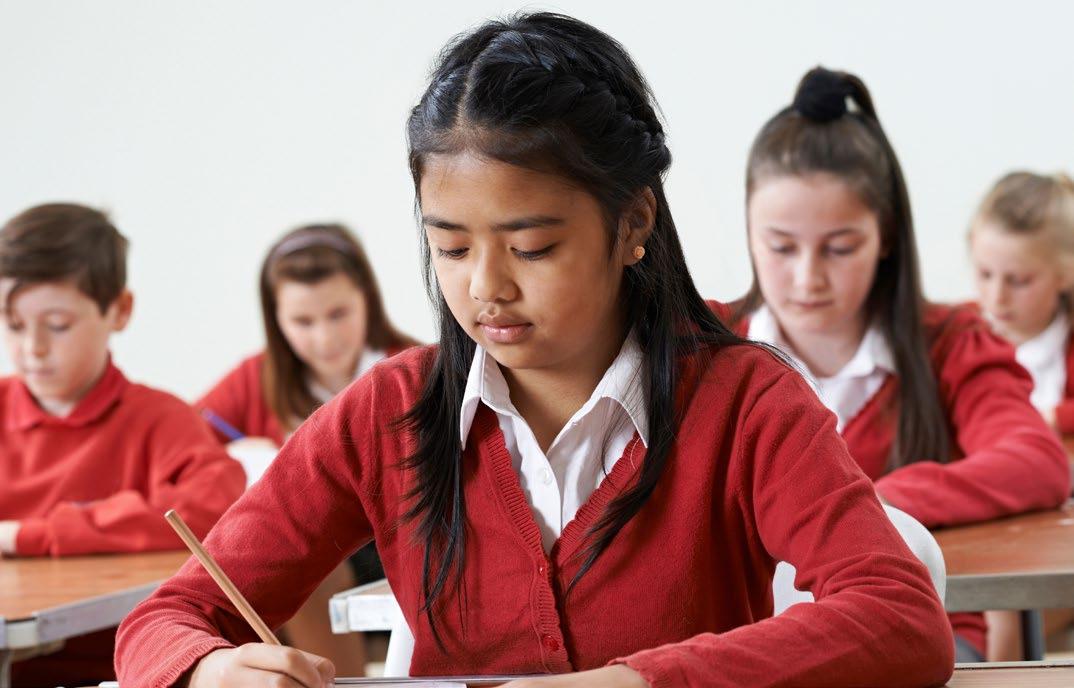
After each session, review your child’s answers to highlight strengths and areas of focus. When your child feels ready, consider booking an external mock test to replicate the full exam experience, including the presence of other students. This can boost confidence and reduce exam-day nerves.
Final preparations and exam day
In the final weeks, review key concepts without overwhelming your child. Use simple relaxation techniques, like deep breathing, to help them stay calm and positive. On exam day, ensure they have a nutritious breakfast and double-check that they have all the required materials. Keep the atmosphere calm, offer words of encouragement and focus on positive affirmations to help them feel supported and ready to succeed.
Lucy Spencer is founder of Education Boutique (www.educationboutique.co.uk), which provides in-person tutoring for children, schools and local authorities, designed to meet individual needs and ensuring that each child can access the right resources at their own pace.

Would you like to host and teach English to a foreign student in your home ?
are currently recruiting hosts who can offer a spare bedroom, 3 meals per day and the required lessons and activities
You choose when to host and who to host ! Payment from £500 to £800 per week Get in touch to find out
By Ellie Malt
Ah, winter. The season of... cabin fever? Yes, keeping children off screens is challenging. Well, challenge accepted! Read on for ten ways to keep them moving indoors!

Mission impossible
Place a prize in the middle of the room. Then tie string so it criss-crosses the room at different heights and angles: these are your invisible lasers. One child wears a blindfold. The second child instructs them on how to navigate the maze without touching the string to get the prize. They must return through the ‘lasers’ to win the reward.

Tabletop showdown
Got a kitchen table? You’ve got a ping pong table in the making! Grab some makeshift paddles (books work), a lightweight ball and let the games begin. You can use paper plates and a balloon for a slower version. You could also tape empty shoe boxes to the table ends to make goals and use straws to blow the balls.
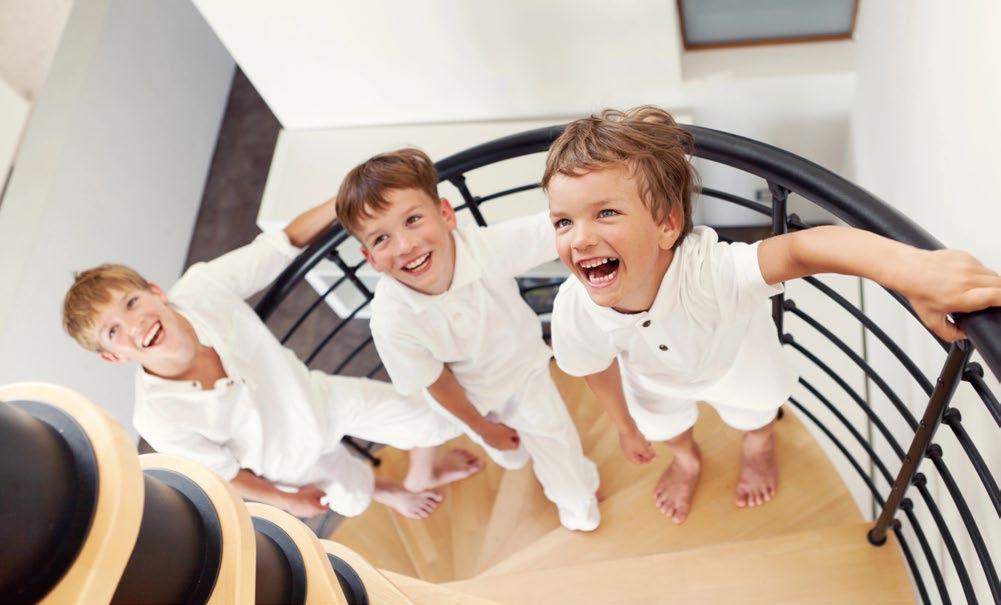
Stairway cardio
If you have stairs, why not build some stamina and get a cardio workout going? Set challenges like ‘How many times can you go up and down in two minutes?’ or ‘Can you beat your time by the end of the week?’ Keep a chart and make it a challenge for the whole family. For older kids you could encourage them to do a sponsored or timed stair marathon.

Find the key
Hide clues around the house that lead to a key to access a final reward. Each clue can come with a mental puzzle or code to solve but also a physical challenge too e.g. ‘stand on one leg for ten seconds before winning the next clue.’ For older children, you may want to theme this as an escape room.
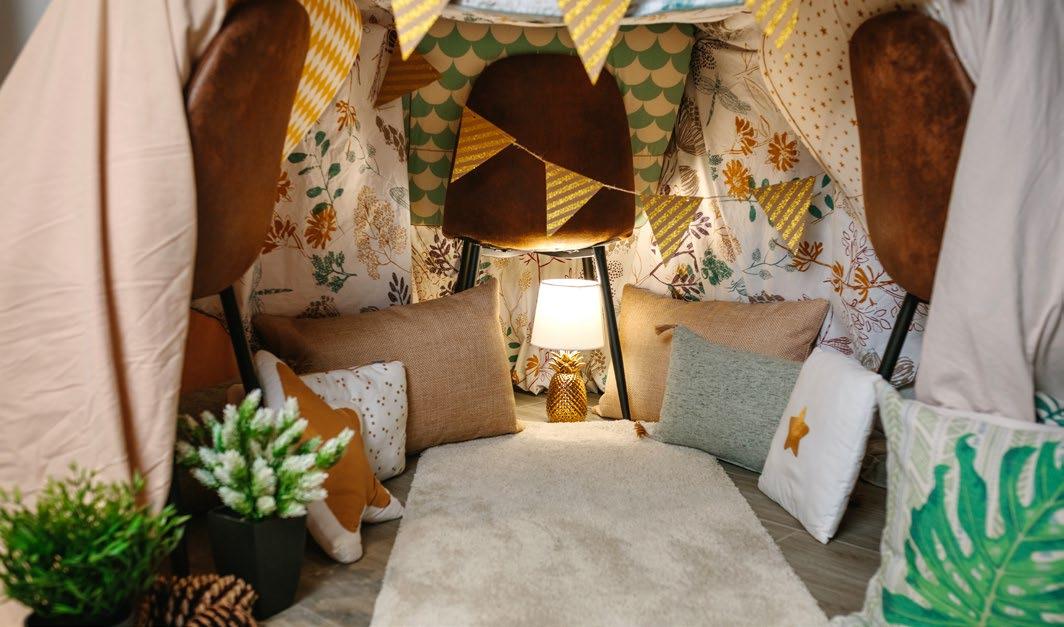
Blanket fort extravaganza
Let’s start with a classic: building a den. BUT we’re not talking about a tiny tent in the corner of the living room. Oh no. We’re going mega. Take every blanket, sheet and cushion you can find and transform your living room into a fortress. Once built, challenge your kids to make a pillow obstacle course inside!

Create an indoor agility course for either your children or pets. Using masking tape, you can create an agility ladder across the floor and a makeshift balance beam. Everyday objects can become a series of jumps. Boxes taped together make great tunnels. Let your kids complete the circuit and try to beat their personal best.

If you’ve got spare space, you can transform it into a temporary gym even without full-size equipment. For example, you can buy a small stand for your bike that turns it into a cycling machine. Look for pull up bars that fit doorways. One easy way to make a DIY rowing machine is to use a resistance band attached to an upright. Sitting on a skateboard or similar, you can push back and forth with the legs, pulling with the arms. Finally, you can create stations for exercises like jumping jacks and push-ups.

across the living room
Everyone has ten minutes to find as many boxes and bits of junk as possible. Then they have one hour to build a vehicle. Each child will get to test their creation by attaching it to their body and taking part in a kneeling race. They must stay inside the vehicle and cannot hold it with hands, arms or feet. Depending on their age, you could add an obstacle or two. Points can be applied for style, originality, moving parts etc.
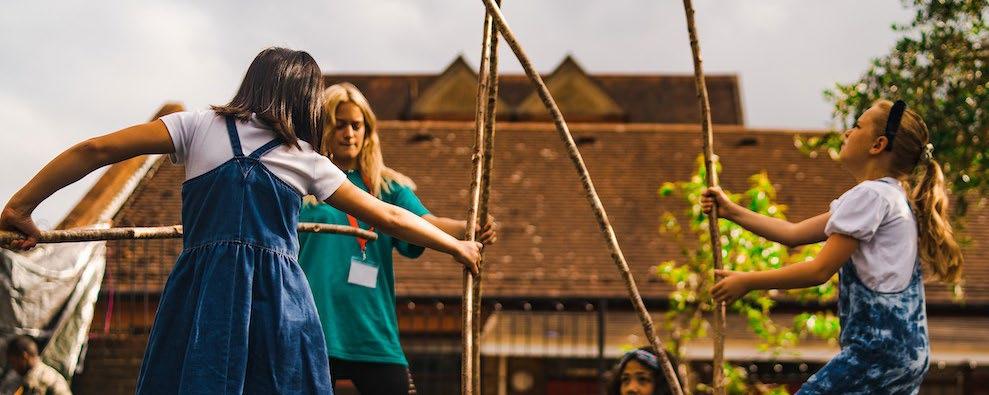
Global Camps run an inspiring holiday camp programme for children ages 4 to 12 during school holidays.
Their camps combine language learning, sports sessions, art and craft and outdoor activities, meaning they are ‘a must’ for children that like a variety of activities and who want to be both physically and mentally active, as well as creative.
Running daily from 17 to 21 February from 8.30am to 3.30pm at Kelvingrove Primary School, extended care is available.
More info at www.globalcamps.co.uk


Mother Nature Science offers award-winning science school holiday camps, which inspire children ages 5-12 with a lifelong love of science and learning. February half term camps run 17 to 21 February from 9.00am to 3.30pm (extended days available) in SE1 6HA, SE3 7HF, SE16 5ED and SE21 7AL. Quote 10OFFFAMILIESMAG for a discount!
Let your child become a science investigator at these safe, fun, hands-on camps, featuring experiments, hands-on science sessions and take home activities.
More info at www.mnature.co.uk

At weekly fifty minute Funky Monkey Keyboard Classes for ages 4+, children learn pieces from specially designed books written by Funky Monkey, including tunes such as Old MacDonald, Jingle Bells and Happy Birthday.
Taught in small groups, after around two terms, children can take an informal Funky Monkey exam or the Trinity Initial Exam if they wish. Neither are compulsory. Register your child before 31 January for a FREE trial and 10% off first term’s fees!
Funky Monkey also runs school holiday workshops so book early for their Easter course! Over five mornings (2.5 hours per morning), children learn to read, play and write notes C-A alongside learning keyboard technique and enjoying musicbased activities.
More info at www.funkymonkey.info


By Lucy Upton
If you’re a new or expectant parent, you may have heard a lot about the importance of your baby’s microbiome. But what even IS it? And why is it important?
The microbiome encompasses the large but invisible community of microorganisms such as bacteria, fungi and more, that live in various body parts. The one receiving the most attention in recent years is the gut microbiome. Your baby’s gut microbiome affects everything from their digestion (which you might expect) to immune function and brain development.
The importance of the microbiome
During the early months and years, up until they reach age 3, babies develop a community of gut bacteria that will last a lifetime. Developing a well-balanced microbiome during these years not only supports short-term health but will also reduce the risk of conditions like food allergies, asthma, obesity and immune conditions later in life. Several factors influence how your baby’s microbiome develops, some of which you can control and others which you cannot.
Mode of delivery. Babies born vaginally are exposed to their mother’s vaginal microbiota, while caesarean-born infants are initially exposed to microbes from their mother’s skin and the hospital environment.
Feeding method. Breastmilk is ideal for growing a healthy gut garden, containing its own probiotics (food to fuel gut bacteria) and a whole breastmilk biome. Babies who are formula-fed are known to grow a different community of gut bacteria but increasingly, formula milks have added ingredients to try and mimic the components in breast milk that help good gut bacteria thrive.

Breast milk is a dynamic substance rich in various factors influencing your baby’s microbiome. Research suggests that breastfeeding lowers your baby’s risk of certain diseases and helps build a strong immune system. Below are just a handful of gut-loving components in breastmilk and how they help your baby’s gut garden grow and develop.
Breastmilk’s prebiotics. Prebiotics are fuel or ‘food’ for gut bacteria. Breastmilk is rich in a substance known as Human Milk Oligosaccharides (HMOs), a form of prebiotic. HMOs reach your baby’s gut undigested to encourage the growth of food bacteria and support immune function.
Breastmilk’s probiotics. Breastmilk contains a community of bacteria, sometimes called the breastmilk biome. These help to establish and maintain your baby’s balanced gut microbiome. Antibodies. Certain antibodies, especially Immunoglobulin A (IgA), help coat your baby’s gut and protect it from harmful pathogens.

When your baby starts solid foods, their gut microbiome undergoes a significant transformation as they experience a diverse range of new foods.
Environment. Exposure to pets, siblings and diverse environments can fuel the growth of your baby’s microbiome. A little dirt and outdoor play as your baby grows older are also excellent for their gut community.
Medications. Certain drugs are known to disrupt the balance of bacteria in your baby’s gut. Antibiotics are well-known culprits but other medications, including some anti-reflux medications, are also known to impact the gut microbiome. However, it’s important to remember that these medications can be essential for treating specific conditions and should always be used under the advice of a doctor.
Lucy Upton is founder of The Children’s Dietician (www.thechildrensdietician.co.uk) and expert speaker at The Baby Show (www.thebabyshow.co.uk) with Lidl GB, taking place 7-9 March at ExCeL London and 9-11 May at NEC Birmingham.
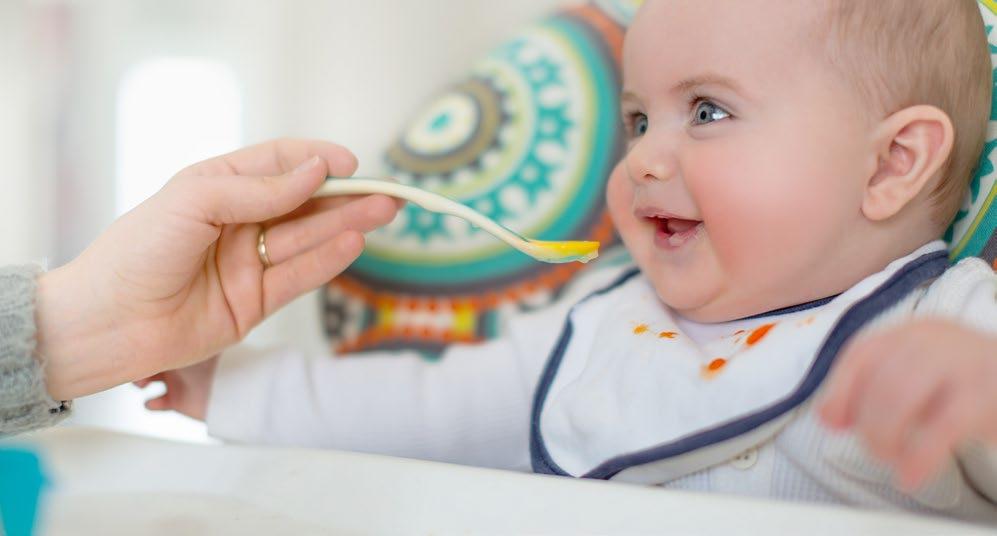
The introduction of food marks a significant shift in your baby’s gut microbiome. Suddenly, there is an influx of new options to feed the community of bacteria and certain foods are potent fuel - namely, those containing fibre. Whilst it’s essential to be mindful of overall fibre content in your baby’s diet, prioritising a varied weaning diet, including the foods below, will be a key step in nurturing a healthy microbiome.
Fruit. Offer a range of colours and types, such as pureed, mashed or soft finger food options like bananas, steamed apples, raspberries and ripe pear.
Vegetables. Offer a range of options, including green and root vegetables. Many work well as finger foods and/or pureed or mashed options.
Beans, legumes and lentils. These are easy to incorporate mashed or blended into meals or as options like hummus, which is excellent on toast or loaded onto roasted vegetables. Grains. Oats are perfect for porridge, milled in pancakes or sprinkled on top of muffins.
By Purnima Tanuku
Early education and childcare is very expensive, especially for our youngest children and as research has shown, many parents end up working just to pay for their child’s nursery. So why is UK childcare so expensive compared to childcare in similar countries? The reason is that the government contribution has been so low and until recently it was limited to children ages 3 and 4.
So, when the previous government’s plan to expand childcare support for working parents in England was announced last year, this was great news, not just for parents but also for children. Research shows that high quality early education and care supports their development, wellbeing and has an impact on their education all through their schooling.
What is the new childcare offering in UK childcare?
The childcare expansion is being delivered in stages, building on the thirty hours of funded childcare for children ages 3 and 4 which was already available. However, the offer is still only available to families where parents are working at least sixteen hours a week.
The roll out provides:
• fifteen hours funded childcare a week for children age 2 from April 2024
• fifteen funded hours for children ages 9+ months from September 2024
This will be increased to thirty hours funded childcare for all children under age 5 from September 2025.

Although government funded hours make a difference to family finances, this funded childcare still involves costs for parents. It is important to be aware of the following parameters:
The thirty and fifteen hours of government supported childcare is not ‘free.’ The government only pays for the actual childcare sessions, which does not include any meals, snacks, consumables or additional activities, so families can expect to see settings make charges for these.
The funded hours are only during term time. Most parents work all year round so providers may ‘stretch’ these hours across the year, reducing the hours per week.
Depending on the length of your sessions, you will need to pay for any additional hours you need at the nursery’s usual fee especially for early or later hours.
Purnima Tanuku OBE is Chief Executive of National Day Nurseries Association (NDNA) (www.nda.org.uk), a charity with a mission to see children and families thrive through access to high-quality early education and care.
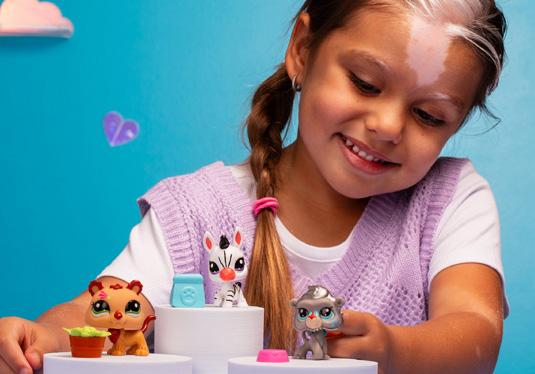
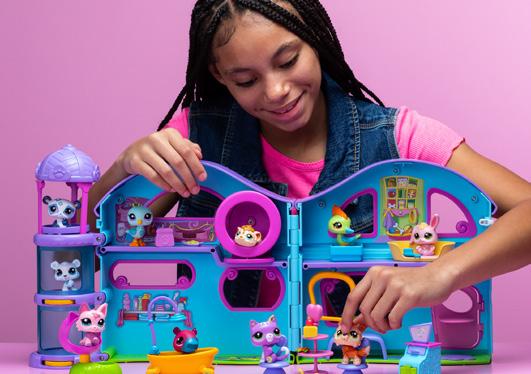



By Sarah Lindsley
New year, new you. The old cliché is all too familiar and 1 January can stir up strange feelings, piling on the pressure to turn over a ‘new leaf’ before we have even finished tidying up the remnants of the New Year’s Eve celebrations. But the start of a brand-new year can actually be the perfect opportunity to embrace some exciting changes, even if it is just trying out some new dishes or booking that family day out you’ve been meaning to for ages. Time to feel alive and welcome 2025 with open arms!
Put your best foot forward
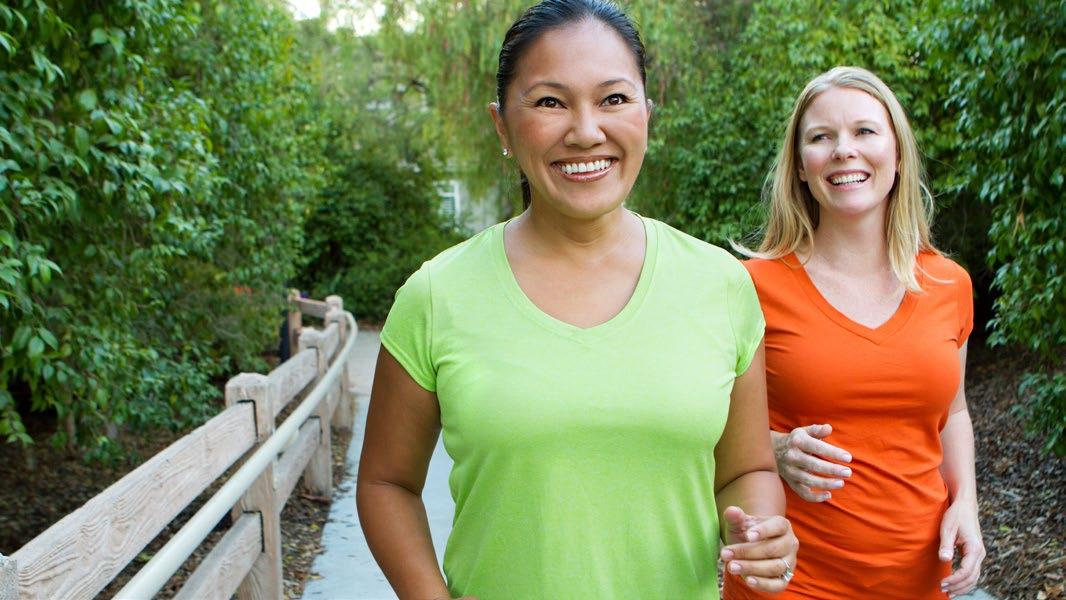
We all know that walking is great for us. Getting your ten thousand steps a day is one of the best low-impact ways to stay healthy and fit. But why walk alone? There are lots of local walking clubs all across the country, so while the kids are at school or busy with weekend activities, you can get walking, talking and exploring in the fresh air. With over five hundred walking groups across Britain, Ramblers (www.ramblers.org.uk/) is a great place to start.
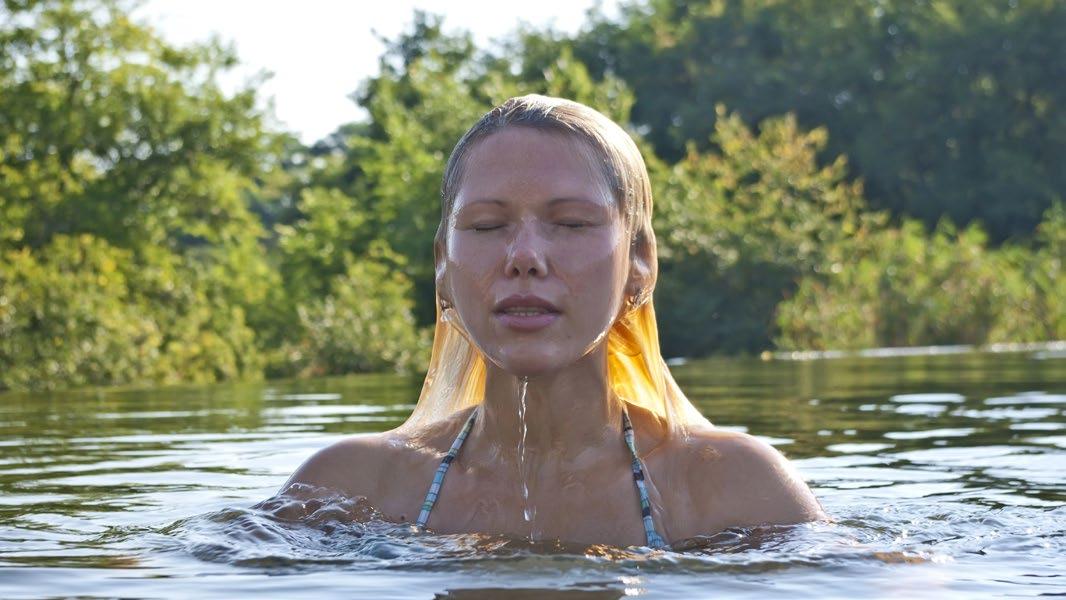
Go wild
It might not be for the faint-hearted but there’s a reason that wild swimming has had a huge surge in popularity in the last decade. There are no limits on age or fitness levels and the positive effects of cold water and fresh air on the mind and body are indisputable. The promise of a warm coat, flask of hot tea or coffee and all those feelgood endorphins flooding your body when you emerge will help you take that chilly leap of faith.

Make time for a family day
The thought of a family day out can have us all checking our bank balances but quality family time doesn’t have to cost the earth. Sometimes just a trip to your local park with a hot chocolate and a game of hide-and-seek is enough to get everyone laughing and chatting. Take a pedal boat out on a pond near you or plan a nature scavenger hunt. Kids also go free at lots of museums and attractions across the country; look out for annual memberships to save money across the year at your favourite spots.

Channel your inner Picasso
The link between doing something creative and positive benefits for the brain is commonly accepted by scientists. Creative activities stimulate both sides of the brain and can even have a similar effect to meditation, reducing stress and helping you to become more mindful and ultimately, happier. Pottery painting is a fantastic way to channel your inner artist and lose yourself in colour and contour. Find your local pottery painting studio, grab your mum friends and make a night of it! Or book in for a memorable kids’ party.

Get creative in the kitchen
We all default to repeating the meals that we know won’t have the children sulking at the table, especially mid-week with homework, after-school activities and work pressures. But the weekend is the perfect excuse to dust off those old recipe books or search for some mouth-watering dishes online. If you fancy someone else making the decisions for you, companies like Hello Fresh, Gousto or Mindful Chef provide you with all the inspiration, instructions and ingredients to ensure that even the fussiest eaters are begging for seconds.
Get body brushing

Family life means we don’t often have time for those ‘self-care’ moments that we know are so good for us. Yes, a full-body massage might have to be saved for an annual birthday treat. But invest in a good body brush and set aside just five minutes a day to brush your skin in long strokes towards your heart and you’ll soon be reaping the rewards with better circulation and glowing skin.
Tell us a bit about yourself Aiden
I’m Aiden and I’m 8 - I’ll be 9 on Christmas Day. I live in Somerset with my mum and dad, our rescue dog Nevis and my pet snake Cornelius. I do Swimming, where I’m at Stage 7 and Taekwondo where I recently got my Yellow Belt. I also do Cubs where I get to earn badges, play games and be outdoors. I enjoy listening, dancing and singing to music. I like drawing, I love LEGO® and I play Pokémon Go.
How did you first hear about The Outdoor Guide Foundation?
At the very first Outdoor Expo when I was 6, I met Gemma Hunt on their stand and she told us about the plan to give every primary school sets of Waterproofs and Wellies so that all children could go outside on rainy days without getting wet and cold or having to stay inside.
What inspired you to help The Outdoor Guide Foundation?
I wanted to help lots of other children go outside more because it’s better than indoors, even when it’s raining! My parents have taken me camping and hiking a lot since I was really small and got me really good things to wear like proper waterproofs, hiking boots and rucksacks. I’m really lucky that I get to go everywhere like up mountains and I know other children may not get to go to such adventurous places but I really want everyone to be able to get fresh air and stay warm and dry.
Tell us what you’ve been doing to help.
The first thing was a big hike on Dartmoor when I was 6 and a half. I wanted to do it in one day (but mum and dad carried a tent just in case). I did all 16 miles in ten hours! We started at 7am and did lots of up and down on the moor (700 metres of ascent) - my feet hurt at the end. I raised

£568 - enough money to get two sets of Waterproofs and Wellies and even had my fundraising doubled afterwards which was amazing!
Then I found out about the Fan Dance, the special forces training hike in the Brecon Beacons. They do it in four hours, carrying heavy kit, so I carried all mine and I did the 22.7 kilometres in under eight hours and this had more than 1000 metres of up – it included Pen Y Fan!
It was harder than I thought it would be, I liked the up bits but not the boring flat bit in the middle. I raised £743, enough money AGAIN for two whole sets Waterproofs and Wellies – and a bit. I think the Foundation will round it up to three though! I can’t wait to find out where they go to.
Tell us about being an Outdoor Guide Foundation Youth Ambassador
It means I can represent the Foundation as a young person who is supporting

them and show other children that they don’t have to be adults to help too. I spent a weekend helping the Foundation and Challenge the Wild who were helping children from families that don’t get outdoors much. And I want to keep helping even more children get Waterproofs and Wellies. I like meeting people and I get to feel proud. I even got a t-shirt!
What do you like about being outdoors?
Being outdoors hiking, walking and camping makes me feel peaceful. I love nature and being in the mountains, woods and on the coast, like when we did some of the South West Coastal Path this summer. It’s good exercise and I stay healthy.
How do mum and dad support you?
They cheer me on, keeping me going when I feel I don’t want to and making sure I have some sweets on hikes for when I get tired. They carry extra kit too and share my fundraising so more people know about it and I can raise more money.
The Outdoor Guide Foundation is looking for more children to become Ambassadors. What would you say to others about getting involved?
That it’s a really good thing to aim for and picking something that’s a bit of a challenge to you but is also fun can give you ideas on how to help and raise money. Start with something small and keep moving and remember that being outdoors makes you feel good – even if it’s raining (you can have hot chocolate with marshmallows at the end)!
If your child is interested in becoming an Outdoor Guide Foundation Youth Ambassador, find out more at www.theoutdoorguidefoundation.org/ ambassadors


By Rachael Shephard
At 3am I opened my eyes and felt the all too familiar jolt of anxiety flooding my chest. I’d done it again. Five days of sobriety had been obliterated by a bottle of red wine.
Why do I do this to myself? I was feeling so much better. Why didn’t I just stick to the plan? Why is this SO hard!
Despite my solemn commitment to get sober, yet again I’d (quite literally) run to my local shop to buy a bottle of wine. I was hopelessly addicted.
Years of social drinking and ‘mummy wine o’clock’ endorsements had convinced me that I was just like all the other mums. How could I possibly have a problem if everyone else was doing the same thing? I didn’t drink in the mornings, was successful in my job and managed to spin multiple plates. I couldn’t be an alcoholic.
It was the sudden and totally unexpected death of my mum and an acrimonious divorce that fully catapulted me to a two-bottlesa-night wine habit and eventually, to concede that I did actually have an issue with booze. It became horribly palpable. Severe chest pain and blind panic in the early hours. Raging daily hangovers. Putting my boys to bed early so I could drink myself into a nightly coma. Constant fear for my declining health.
Every single morning, I would set the intention to not drink that evening. But addiction is a sneaky beast and in the aftermath of the dreaded school run, Pinot was the obvious answer to all of my problems.

Tell everyone who matters to you that you’re going to quit. It won’t be easy but when you’re vocal about your issues with alcohol it gives you accountability and crucially, support from those who care about you most.
Read up on addiction for the sobering facts. When I first quit, I was absolutely staggered at how little I knew about alcohol’s effects on the brain and the body. Unravelling the many widely-held false beliefs about alcohol allows you to consider the truth about what it is doing to your body and your life.
Focus on the basics. It takes three months for the body to properly heal and there are a surprising number of symptoms to navigate. Extreme tiredness, desperate sugar cravings, feeling flat and bored due to lack of dopamine production, to name a few. As long as you stay sober, you’re winning. So rest, eat as much as you like and keep on top of the bare minimum. When your energy pops back in month four, you’ll be good to go.

Looking over to my nightstand, my journal was open to a drunken revelation: ‘This does not feel good.’ I didn’t remember writing it but something hit home in that moment. Alcohol had finally become pointless. That was the moment the decision to quit finally stuck.
Three years on and now happily sober, I’m living proof that life truly can begin again at age 40. I’ve started my own sober coaching business, written a book sharing my mistakes and lessons learned and I’m focused on finding joy in as many ways as possible; without alcohol.
I certainly couldn’t have imagined it would be so fulfilling; not just surviving, but actually living with purpose and fulfilment. They say that addiction is giving up everything for one thing and sobriety is giving up one thing to gain everything. I couldn’t agree more.
Sober Mama, Rachael Shephard’s book, is available from www.bookshop.org

Stick to daytime socialising until you’re beyond the threemonth mark. Going out for dinner (sans wine) can be extremely difficult at first. Opt for lunch out instead. This way you can maintain your social life instead of hiding indoors just to avert the risk.
If you have to go to an event involving alcohol eg a wedding, drive. The majority of the internal conflict with triggers is wrestling over the decision of whether or not to drink. By removing the option entirely, there is no choice to make, which makes life a whole lot easier. It also saves you from the inevitable questions about why you’re not drinking.
Reduce stress anyway you can. Triggers often follow tense events like work or family dramas. Stress leads to triggers and triggers lead to cravings. Exercise is a great way to reduce stress and burn off cortisol. Meditation can help you to find peace in a moment. Whatever floats your boat, reducing the drama in your life is the key to maintaining early sobriety.
Compiled by Robina Cowan
All details are as provided when going to press. However, in case of changed plans, do double-check before setting out.
Daily until 20 Jan
Mars in the Painted Hall at Old Royal Naval College
Measuring seven metres in diameter, Luke Jerram’s astonishing, slowly rotating installation features detailed NASA imagery of the Martian surface, merging science with history, myth and allegory.
King William Walk SE10 9NN www.ornc.org
Weekends until 9 Feb
Gingerbread Sailors at HMS Belfast
A gingerbread sailor trail and FREE decorating craft sessions for families.
The Queen’s Walk SE1 2JH www.iwm.org.uk/hms-belfast
Daily until 23 February
Barbie®: The Exhibition at The Design Museum
Journey into the Barbie universe and discover over 250 remarkable objects, with rare, unique and innovative dolls dating from 1959 to the present day.
Kensington High Street W8 6AG www.designmuseum.org
Daily until 2 Mar
Lost Gardens of London at The Garden Museum
An exhibition revealing the secret history of some of London’s most beguiling forgotten gardens, including a zoo in Southwark, Britain’s first ecological park and a botanical garden beneath the platforms of Waterloo station. Lambeth Palace Road SE1 7LB www.gardenmuseum.org.uk
Daily
The Sky Tonight at Royal Observatory Greenwich
A live show taking visitors on a tour of what can be seen in the night sky, complete with a fly-out to the edge of the visible universe. Ages 7+.
Blackheath Avenue SE10 8XJ www.rmg.co.uk/royal-observatory
Weekends
Meet the Crew at HMS Belfast
Delve into life onboard the ship through eye-witness accounts of sailors and hands-on objects. Ages 7+.
The Queen’s Walk SE1 2JH www.iwm.org.uk/hms-belfast
Weekends and School Holidays
Ted’s Space Adventure at Royal Observatory Greenwich Explore the solar system with a
bear named Ted, learning about the things we find there and how they affect us. Ages 3-7.
Blackheath Avenue SE10 8XJ www.rmg.co.uk/royal-observatory
Meet the Characters at Cutty Sark
Meet the captain, chat with the cook, and take a tour with Nannie the Figurehead!
King William Walk SE10 9HT www.rmg.co.uk/cuttysark
Every Fri Family Fridays at Dulwich Picture Gallery
FREE, expressive art-inspired activities for families. Gallery Road SE21 7AD www.dulwichpicturegallery.org.uk
Every Sat Character Encounters at National Maritime Museum
Guided tours bringing to life stories from the museum. Ages 5+. Romney Rd, Greenwich SE10 9NF www.rmg.co.uk/national-maritimemuseum
Family Craft Activities at Horniman Museum and Gardens
Learn about some of the 350,000 objects in the Horniman’s collections, and discover more about music, nature, wildlife, and the world around us as you get stuck into some crafts and have fun at these volunteer-run sessions for all the family. Ages 3+, FREE drop-ins. London Road SE23 3PQ www.horniman.ac.uk
Every Sun
Art Sundays at Dulwich Picture Gallery
Be inspired to make art together as a family in these FREE creative
workshops at the Gallery. Gallery Road SE21 7AD www.dulwichpicturegallery.org.uk
Wed from 8 Jan
Natter with a Nav at Bellingham Family Hub
Are you looking for a welcoming space to connect, chat and unwind? This regular, navigated session is the perfect opportunity for parents, carers, children and young people to drop-in for support and advice. 3.15-4.30pm, FREE, drop-in. Email: kashmir.thethi@lewisham.gov.uk 109-111 Randlesdown Rd SE6 3HB www.futuremen.org/future-dads
4-5 Jan
Family Fun Weekends at Cutty Sark
Climb aboard for family-friendly workshops and activities for all ages. King William Walk SE10 9HT www.rmg.co.uk/cuttysark
11 Jan
SENsory Sailors at National Maritime Museum
A monthly session for families with children with special educational needs and disabilities, led by a SEND specialist. Romney Rd, Greenwich SE10 9NF www.rmg.co.uk/national-maritimemuseum
11 Jan-23 Feb
Neon Brush Kids at Glaziers Hall
A creative and family-friendly environment filled with music, stencils, brushes and fluorescent paints. Make your own glow in the dark canvases to take home. Montague Close SE1 9DD www.feverup.com/m/254249



25 Jan
Safe Harbour at National Maritime Museum
FREE workshops within a friendly and welcoming space, run by support organisations for foster and adoptive families with children under 13.
Romney Rd, Greenwich SE10 9NF www.rmg.co.uk/national-maritimemuseum
25 Jan
Family Space at South London
Gallery
On the last Saturday of every month, the gallery hosts FREE children’s art activities. Peckham Road SE5 8UH www.southlondongallery.org
30 Jan
Mini Masterpieces
Take your little one on a journey through the Gallery to discover people, places and animals in paintings, followed by a ‘messy play’ art-making activity. Ages under 5. www.southlondongallery.org
31 Jan
Family Fridays at Sadler’s Wells Theatre
Dance workshops for accompanied children, facilitated by a freelance lead and supporting artist and managed by the Learning & Engagement Department. Ages 2-4, all abilities. Rosebery Avenue EC1R 4TN www.sadlerswells.com
1-2 Feb
Family Fun Weekends at Cutty Sark Climb aboard for family-friendly workshops and activities for all ages. King William Walk SE10 9HT www.rmg.co.uk/cuttysark
14-22 Feb
The Moonwalkers at Lightroom
Tom Hanks narrates a 50-minute immersive experience, taking audiences from launch pad to the lunar surface and back again. The show is both educational and inspirational as an accessible, cosmic experience for all ages. Lewis Cubitt Square N1C 4DY www.lightroom.uk
14-24 Feb
Let’s Make Some Noise Exhibition by Willow Dene School at Woolwich Works
See website for details.
The Fireworks Factory, 11 No 1 St, SE18 6HD www.woolwich.works/whats-on
15 Feb
Taylor Swift Reimagined (Strings Version) at Woolwich Works
A string quartet performs Taylor Swift hits, a great opportunity for fans who love her music but didn’t make it to The Eras Tour. See website for more details.
The Fireworks Factory, 11 No 1 St, SE18 6HD
www.woolwich.works/whats-on
15-19 Feb
Family Storytelling at Shakespeare’s Globe
Join Globe actors, teachers and directors for storytelling based on different plays each day: Macbeth, Twelfth Night, The Comedy of Errors and The Tempest. Ages 5-12. Plus Family Workshops for ages 5-12. New Globe Walk SE1 9DT www.shakespearesglobe.com

15-20 Feb
Behind the Poster at London Transport Museum
This half term, create your own London Transport poster-inspired artwork, enjoy arts and crafts, interactive workshops and familyoriented tours and trails. Covent Garden Piazza WC2E 7BB www.ltmuseum.co.uk
15-23 Feb
Half Term History Makers at Eltham Palace
Join characters from the past for heritage-inspired hijinks and handson shenanigans this half term. Court Yard SE9 5QE www.english-heritage.org.uk
Passionate Pioneers at Florence Nightingale Museum
Meet Victorian thinkers, campaigners and inventors who changed the world on a fascinating trail filled with hands-on activities. Lambeth Palace Road SE1 7EW www.florence-nightingale.co.uk
15 Feb-2 Nov
The Robot Zoo at Horniman Museum and Gardens
Meet larger-than-life animals recreated from a variety of familiar machine parts and gadgets to discover how their real-life counterparts see, eat, hunt and hide. Try jet-propelled squid racing and shoot a chameleon’s ‘tongue-gun’ and even design your own ‘mutant’ robot creature.
London Road SE23 3PQ www.horniman.ac.uk
15 Feb-2 Nov
Making Egypt at Young V&A
The UK’s first child-centred museum exhibition around creativity in ancient Egypt, showcasing ancient artefacts, contemporary art and design, and captivating scenography. Hands-on activities bring the display to life.
Cambridge Heath Road E2 9PA www.vam.ac.uk/young
17-20 Feb
Crafternoon: Noise Makers at Woolwich Works
17-21 Feb
Mother Nature Science Camps SE1 6HA, SE3 7HF, SE16 5ED, SE21 7AL
Be a science investigator! Awardwinning week of science fun and learning. Curriculum linked and specially developed over 15 years. Ages 5-12. Early bird discount available! Save £60. 9am-3.30pm. Extended hours available. www.mnature.co.uk
17-21 Feb
FREE Day of Childcare at The Strings Club
Celebrate The Strings Club launch in Blackheath with a FREE day of childcare at its February half term camp, using BLKHFREEDAY at checkout.
All Saints School, 2 Blackheath Vale, SE3 0TX www.bit.ly/stringsfreechildcare
18-20 Feb
Decoding Pictures at The National Gallery
Have fun choosing paintings and discover how to decode them with friendly Gallery Educators. Ages 5-13 plus their grownups. FREE drop-in. Trafalgar Square WC2N 5DN www.nationalgallery.org.uk
18-20 Feb
The Noisy Dinosaur at Woolwich Works
See website for details.
The Fireworks Factory, 11 No 1 St, SE18 6HD www.woolwich.works/whats-on
18-23 Feb
Imagine Festival at Southbank Theatre, comedy, music, dance, poetry, stories and family fun at this festival for kids. Lots of FREE events. Belvedere Road SE1 8XX www.southbankcentre.co.uk
19-20 Feb
The Sound of Paintings at National Gallery
Foot stomping, laugh out loud, fun for all the family. This is trash turned into treasure!

Hugely popular pay-what-you-can events. Usually paper-based and are led by artist Christina Rose Brown. See website for more details.
The Fireworks Factory, 11 No 1 St, SE18 6HD www.woolwich.works/whats-on 17-21 Feb
Global Camps at Kelvin Grove School SE26 6BB
A unique mix of language learning, sports coaching, arts & crafts and outdoor adventure to keep young ones active and engaged during all school holidays. Ages 4-12. www.globalcamps.co.uk



Have you ever tried listening to a painting? Join an educator and create your own listening chart to interpret paintings in the collection. All age families, FREE drop-in. Trafalgar Square WC2N 5DN www.nationalgallery.org.uk
21 Feb
Fun for Little Ones: A Tribute to Ms Rachel at Woolwich Works
A tribute show for babies and toddlers and pays homage to the wonderful Ms Rachel show on YouTube. See website for details.
The Fireworks Factory, 11 No 1 St, SE18 6HD www.woolwich.works/whats-on
We Were There at HMS Belfast
A family day where visitors can meet IWM’s veterans and hear an array of personal stories, recollections and powerful memories of life at sea on

board HMS Belfast. Ages 7+.
The Queen’s Walk SE1 2JH www.iwm.org.uk/hms-belfast
22 Feb
Family Space at South London Gallery
On the last Saturday of every month, the gallery hosts FREE children’s art activities. Peckham Road SE5 8UH www.southlondongallery.org
28 Feb
Family Fridays at Sadler’s Wells Theatre Dance workshops for accompanied children, facilitated by a freelance lead and supporting artist and managed by the Learning & Engagement Department. Ages 2-4, all abilities.
Rosebery Avenue EC1R 4TN www.sadlerswells.com
Blackheath Halls, SE3 9RQ www.blackheathhalls.com
22-23 Feb
Smartest Giant in Town
This heart-warming tale about friendship and helping those in need is brought to life in a musical, puppet-filled adventure, based on Julia Donaldson’s picture books.
Churchill Theatre, Bromley BR1 1HA www.trafalgartickets.com/ churchill-theatre-bromley
31 Jan
Baby Broadway
An interactive family concert of songs featuring West End singers, bubbles, puppets and actions. Ages up to 7.

1 Mar
Pirates Love Underpants
Filled with music, puppetry and glittering pants of gold, set sail for a family adventure based on the book by Claire Freedman and Ben Cort.
Kings Place, N1 9AG www.kingsplace.co.uk
18 Jan
Vivaldi’s Four Seasons
A family concert adventure.
16 Feb
Megson Family Folk Show
Acclaimed folk duo Megson combine their award-winning vocals and rich harmonies in a delightful concert tailored for young audiences.
Little Angel Theatre, N1 2DN www.littleangeltheatre.com
Until 26 Jan
The Singing Mermaid
A fun, heart-warming musical adventure based on Julia Donaldson’s book. Ages 3-8.
National Theatre, SE1 9PX www.nationaltheatre.org.uk
Until 22 Feb
Ballet Shoes
Noel Streatfield’s best-selling book is spectacularly reinvented for the stage in a new adaptation by Kendall Feaver. Ages 7+.
Peacock Theatre, WC2A 2HT www.sadlerswells.com
31 Jan-28 Feb
Family Freestyle
Dance together and have fun with your little one in a workshop run by professional dance artists. Ages 2-4





IS YOUR

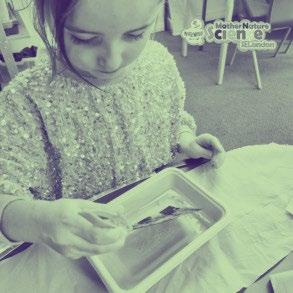
18 Feb-1 Mar Trash!
A fun, musical family show with high-voltage percussion, comic performances and more hi-vis jackets than bin day.
Puppet Theatre Barge, W9 2PF www.puppetbarge.com
Until 26 Jan
Captain Sandy & The Sea Monster
Join Captain Sandy in a brand new, high seas adventure filled with stormy seas, sea monsters, grumpy fishermen and seaweed cake! Ages 4-10.
Queen Elizabeth Hall, SE1 8XX www.southbankcentre.co.uk
23 Feb
Laugh Out Loud Book Awards ‘Lollies’ celebrate the best and funniest children’s books, as voted for by children. Join winning authors and illustrators for an event jampacked with jokes, laugh-out-loud live drawing and fabulously funny stories.
Sadlers Wells East E20 2AR www.sadlerswells.com
20-22 Feb
Birdboy
Journey into an otherworldly landscape with the family. This dance theatre performance is a tribute to all the weird kids left on the sidelines. Ages 7+
Southbank Centre, SE1 8XX www.southbankcentre.co.uk
12 Jan
OAE Tots: Puzzle Tots Lend a hand in solving a tricky puzzle with music and dance.
19-23 Feb
There’s a Bear on My Chair
Settle in as Ross Collins’s beloved story of Bear and Mouse comes to the stage for the first time. Ages 2-7.
Unicorn Theatre, SE1 2HZ www.unicorntheatre.com
26 Jan-22 Feb
Pig Heart Boy
A brilliant new adaptation of the boy who desperately needs a heart transplant and just wants to get his life back. Ages 9-11.
7 Feb-9 Mar
Home Song
A multi-sensory show featuring young Adwoa and her mum on a journey to find the true meaning of home, from the bustling streets of Kumasi to the vibrant heart of London. Ages 6-18 months.
Various Venues & Dates
Bring Your Own Baby Comedy
A funny, friendly afternoon of top comedy, where baby can come too and join in with the rumpus. Shows feature a new line up of comedians each month with two acts plus a compere. Adulst + under 12 months.
16 Jan + 6 Mar in Greenwich
28 Jan + 25 Feb in Crystal Palace
6 Feb in East Dulwich www.byobcomedy.com
Woolwich Works, SE18 6HD www.woolwich.works
18 Apr
The Amazing Bubble Man
From square bubbles to rocket bubbles, Louis Pearl, the Amazing Bubble Man, conjures shrieks of laughter and gasps of amazement through his combination of magic and science.






